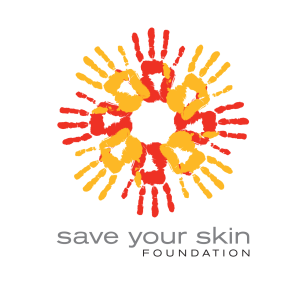 Save Your Skin Foundation’s policy and advocacy work focuses on three main areas:
Save Your Skin Foundation’s policy and advocacy work focuses on three main areas:
- Government Relations
- Health Policy
- Advancement of treatment in the adjuvant setting, treatment in non-melanoma skin cancer, and ocular melanoma
We strive to ensure equal, timely, appropriate and affordable access to the highest level of available therapies for patients and medical professionals.
Our Work
Louise Binder, a lawyer and health advocate, leads SYSF’s health policy work along with SYSF’s founder, Kathy Barnard. Together, they ensure the patient voice is included within political, institutional, organizational and government priorities, through a multitude of actions, including:
-
Meeting regularly with Federal and Provincial Health Ministers to discuss current issues, challenges, treatment options, policy, and patient needs
-
Monitoring Health Canada on policy matters regarding clinical trials, patient experience on drug approval recommendations, and more timely access
-
Monitoring pan-Canadian jurisdiction including CADTH & INESSS for their work on oncology drug review
-
Assisting decision makers at all levels to make informed decisions about current and emerging issues and risks in skin cancer and all cancers
-
Monitoring provincial jurisdictions for public reimbursement and patient access
-
Drafting letters and gather support from other health organizations as issues arise or to congratulate on efforts
ALL.CAN
Save Your Skin Foundation is the Secretariat of All.Can Canada, and is a member of the international All.Can group, adding Canadian perspective to this global project. For more information please visit this page to read all about All.Can and the All.Can Canada initiative.
GOVERNMENT RELATIONS
Save Your Skin Foundation has developed an established government relations approach that includes open communication and consultation between policy makers and leaders within the Foundation. We contribute to policy discussions and work towards consistent and effective implementation of procedures and protocols that put the patient first. Click here to read more on our page “Health Policy Resources”.
INTERNATIONAL ADVOCACY FOR PATIENT ACCESS TO TREATMENT
Advocates across the world are working with those who make decisions about healthcare to ensure that the patients they serve have access to appropriate care. Kathy Barnard of Save Your Skin in Canada knows first-hand how access can transform a patient’s chances. With Canada’s fragmented healthcare system, Kathy has been spearheading submissions to the assessment authorities and believes the next step is to work internationally to share learnings, approaches and evidence globally.
Kathy and Save Your Skin Foundation are proud members of several international initiatives:
To learn more, visit www.aimatmelanoma.org/our-global-influence
Also in collaboration with AIM at Melanoma we develop patient and health care provider resources relevant to the Canadian population. Click here to view booklets on immuno-oncology and targeted therapy treatments as well as a decision-tree guide for adjuvant melanoma patients: www.aimwithimmunotherapy.org/canada
Patient advocates have an important role to play here as they are aware of and can express many viewpoints of the patients they represent. In this paper, a group of patient advocates representing many thousands of patients from around the world explore the following:
- The varying definitions of patient value
- Value from the patient perspective
- Why and how decision‐makers should incorporate patient value in frameworks and guidelines
- How the advocacy community can work together to ensure that the concept of patient value is included in current and future value frameworks.
COLLECTIVE ONCOLOGY NETWORK FOR EXCHANGE, CANCER CARE INNOVATION, TREATMENT ACCESS AND EDUCATION (CONECTed)
In 2015, Save Your Skin Foundation invited a group of leaders in patient advocacy to discuss the need for a network focused on Immuno-oncologies and dedicated to ensuring access to these important therapies for cancer patients in Canada. Since then, CONECTed, a collective of patient advocates, has been dedicated to raising awareness of the needs of cancer patients through a unified and cohesive patient voice and has been involved in addressing issues within the system, at the government level and in HTA both related to immuno-oncology and other therapies. Click here to read more about the work being done by CONECTed


